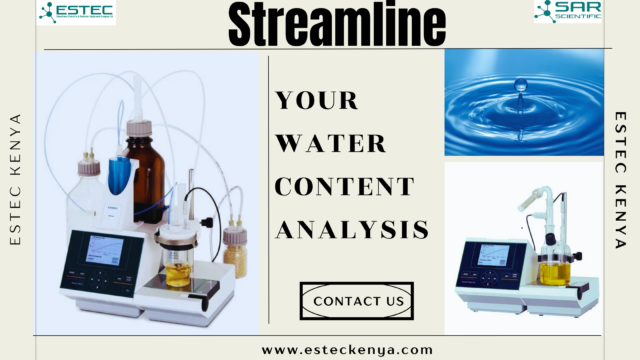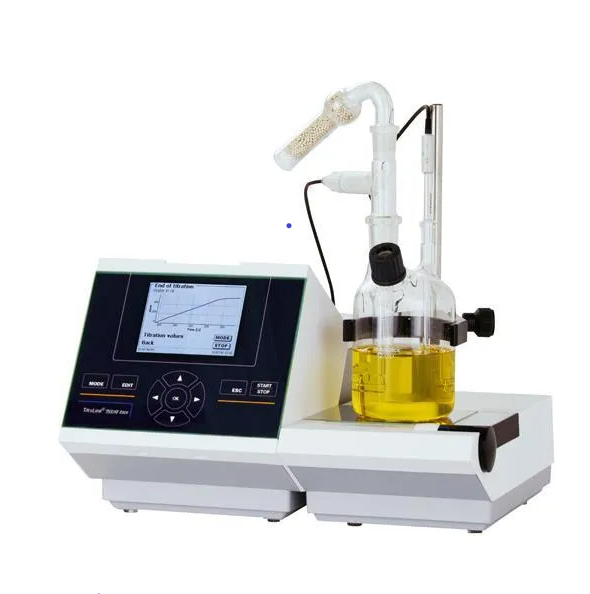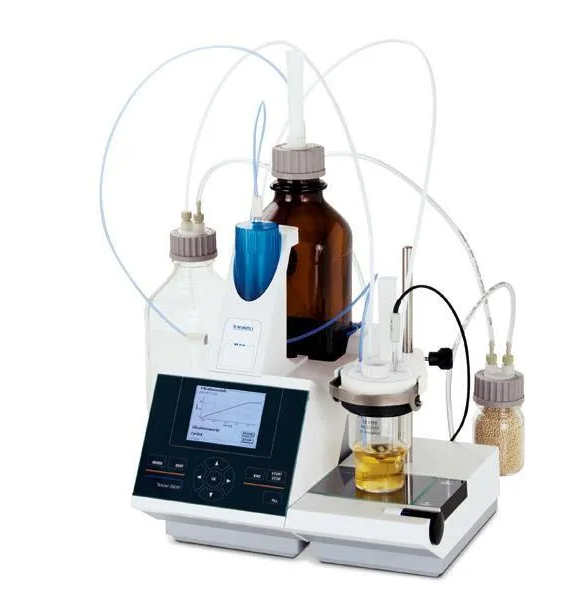PHARMACEUTICAL TEST SOLUTIONS BY ESTEC LTD


Quality control tests of tablets or evaluation of tablets is a systematic determination of physical, chemical, mechanical, biological, or microbiological properties of tablets on the basis of in-house (Non-Pharmacopeial), Pharmacopeial standards such as BP, USP, Ph. Eur., Ph. Int., JP, IP, ChP, or others guidelines such as ICH etc.
A variety of methods are used for evaluation of tablets or conduct quality control tests of tablets, classified into three categories:
- Pharmacopeial or Official Tests of Tablets:
- Identification Tests – The identification test is specified in a product monograph as an aid to confirm that the tablet contains the labeled drug substance by providing positive identification of the active substance(s) and identification of specific excipient(s), such as preservatives in a drug product.
- Friability – Friability testing is used to test the durability of tablets during transit (packing, transportation).
- Disintegration – process by which a solid oral dosages form such as tablet breaks down into smaller particles or granules.
- Uniformity of Dosage Unit – the degree of uniformity in the amount of the drug substance among dosage units.
- Dissolution – Dissolution is the process in which a substance forms a solution. In vitro dissolution testing measures the extent and rate of solution formation from a dosage form (the amount of percentage of the drug substance in a dosage form such as tablets, capsules to go into solution) within a specific time under a specified set of conditions.
- Assay – crucial quality control tests of tablets. A specific and stability-indicating test to determine the potency (content) of the drug product.
- Impurities: Impurities in tablets are specified in an individual product monograph or may be calculated by ICH Q3B(R2) guideline.
Specific Pharmacopeial Tests of Tablets:
- Microbiological Examination of tablets
- Acid-Neutralizing Capacity
- Quality test of Splitting Tablets with Functional Scoring
- Water content
Non-Pharmacopeial or Non-Official Tests or In-House Tests of Tablet:
- Appearance/ Description
- Thickness and Diameter
- Hardness
- Organoleptic properties (color, odor, and taste)
Our products from PHARMA TEST Germany are specified to perform some of the above tests, including:
In this article, we discuss more on Dissolution Testing.
Why tablet dissolution Testing?
Tablet dissolution testing is a crucial pharmacopoeia test for the evaluation of tablets or quality control tests of tablets.
A dissolution test is a means of identifying and proving the availability of active pharmaceutical ingredients (API) in their delivered form.
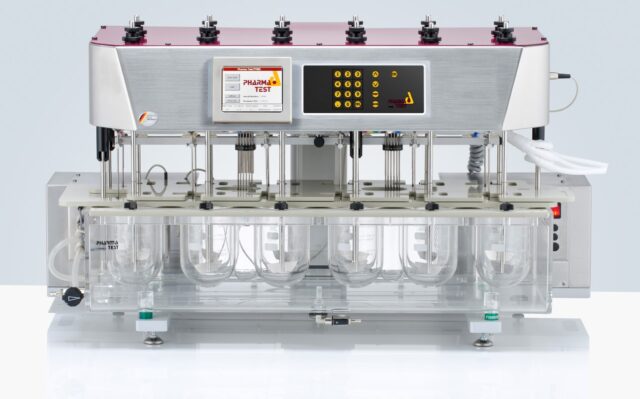
A dissolution test reflects the availability of active substance and allows the prediction of the time for complete release of the material from the dosage form. This test plays an important role in product development, equivalence studies and for product compliance and release decisions. It is vital that the dissolution system provides accurate and reproducible results.
All Pharma Test tablet dissolution testing instruments are fully USP and EP compliant. They use our MonoShaft™ tool system and include a full set of vessels and USP Apparatus 2 paddles. A full range of dissolution accessories is also available.
We offer manual, offline semi-automated, and online automated dissolution systems.
Operation Principle – offline dissolution system
As soon as the samples have been inserted, the system will start its automated operation. The sampling times have been programmed via the touch screen of the PTWS 1220 dissolution bath and are saved as a specific method for subsequent tests. After the start of test, a command is sent from the dissolution bath to the PTFC-16 fraction collector and from there to the connected pump to start a sampling sequence. The EPE-1220 moves the sampling tubes and filter tips into the media to the selected sampling position.
The pump will start to fill up and pre-flush the tubing. When all tubing is filled-up, the samples are collected into vials inside the collector dish of the PTFC-16. Depending on the system configuration, after dosing the volume will be refilled and the EPE-1220 will move back out of the dissolution vessels. At the end of a cycle all the tubing is emptied. The system is waiting for the next sampling time. All vials are covered during the test; the vial dish can be easily removed. Also, special dishes are available for HPLC vials.
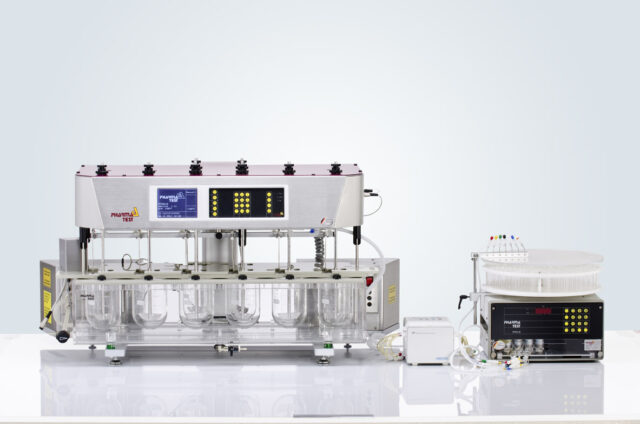
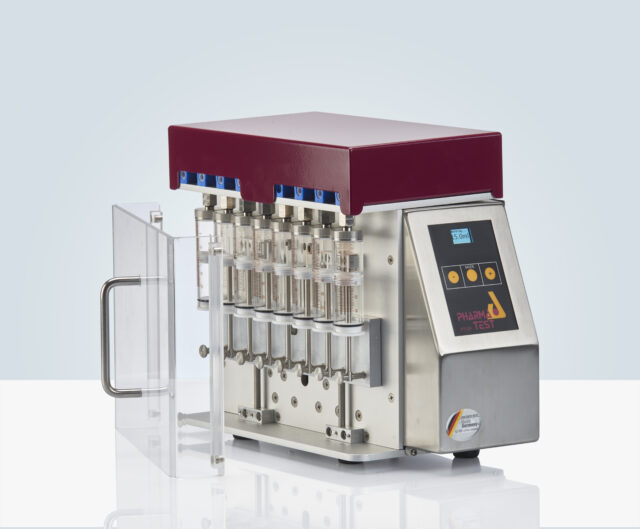
DFC (offline Automated Dissolution Testing Systems)
Principle Online Dissolution Testing System
The multi-channel IPC pump is used to transfer the media from the vessels to the spectrometer. The samples here are circulated in a closed loop, so that there is no sample volume loss over the time of the dissolution test. At the programmed time point the sample circulation is stopped and either a single point absorbance reading, or a full UV/VIS spectrum of each vessel is collected. The control of the entire system as well as the data handling, calculation and reporting is performed by the 21 CFR Part 11 compliant WinDiss ARGUS Software.
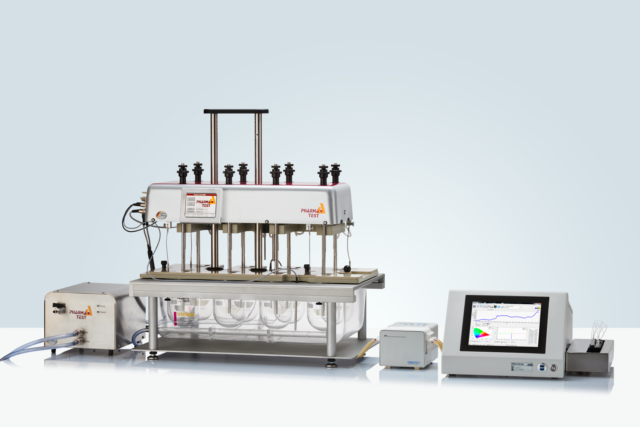 ADL (Online Automated Dissolution Testing Systems)
ADL (Online Automated Dissolution Testing Systems)
Optional WinDiss ARGUS Dissolution Software is 21 CFR Part 11 compliant as well as compliant to the new requirements for Data Integrity.
WinDiss ARGUS Dissolution simplifies how you collect and report dissolution test results by letting you choose the analysis template that matches the way you work. Whether you are in QC concerned about data integrity, compliance, and validation, or need maximum flexibility in R&D, WinDiss ARGUS Dissolution can help your lab perform more efficiently.
For more information, clarifications, and requests, feel free to contact us anytime.
Written by Pascalia Jerop – Sales Executive, ESTEC LTD
Published by Mitchelle Gacheri– Marketing Executive, ESTEC LTD
